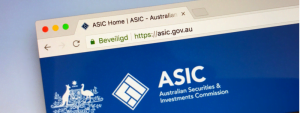Payday super will completely change how superannuation guarantee (SG) payments are managed. Payday super, which would see SG paid within 7 days of an OTE payment being made, is not yet governed by law, but Treasury has published a fact sheet outlining the mechanism’s operation. We investigate the specifics.
Payday Super: A preview
The Treasury has released a fact sheet outlining the proposed “Payday Super” measure from the 2023-24 Federal Budget. The reform aims to tackle the issues of unpaid and underpaid superannuation by requiring employers to make Superannuation Guarantee (SG) contributions more frequently, specifically on the employee’s payday.
Effective from 1 July 2026, employers must pay SG contributions at the same time they pay employees’ salaries or wages, moving away from the current quarterly payment system. Each time Ordinary Time Earnings (OTE) are paid, a new 7-day deadline will apply for these contributions to reach the employee’s super fund. If payments are not made within the 7-day window, employers will face a new SG charge, with some limited exceptions.
The SG charge framework will be updated to ensure employees are adequately compensated for any delays in receiving SG payments. Stricter penalties will apply to employers who repeatedly fail to meet these obligations. The revised SG charge will include:
Outstanding SG shortfall | Calculated based on OTE, rather than total salaries and wages as it is currently. |
Notional earnings | The SG shortfall will incur daily interest from the day after the due date calculated at the general interest charge (GIC) rate on a compounding basis. |
Administrative uplift | An additional charge levied to reflect the cost of enforcement, and calculated as an uplift of the SG shortfall component of up to 60%, subject to reduction where employers voluntarily disclose their failure to comply. |
GIC | Interest will accrue on any outstanding SG shortfall and notional earnings amounts, as well as any outstanding administrative uplift penalty. |
SG charge penalty | Additional penalties of up to 50% of the outstanding unpaid SG charge, that apply where amounts are not paid in full within 28 days of the notice of assessment. |
Unlike the current SG charge, the new one will be tax-deductible. However, any penalties and interest that accumulate if the SG charge isn’t paid within 28 days will not be deductible.
To aid in this transition, several changes will be introduced. These include shortening the deadline for superannuation funds to allocate contributions from 20 business days to three, revising the SuperStream data and payment standards, and phasing out the Small Business Superannuation Clearing House from 1 July 2026.
The ATO will also strengthen its compliance efforts by cross-referencing employer Single Touch Payroll data with superannuation fund reports, enabling them to detect late or missing payments more effectively.
Draft legislation is expected to be released for consultation later this year.
Get ahead of the upcoming superannuation changes! With Payday Super set to take effect from 1 July 2026, employers need to prepare now. Ensure you’re equipped to comply with the new 7 day SG payment deadline, avoid penalties, and streamline your payroll with our team.
















